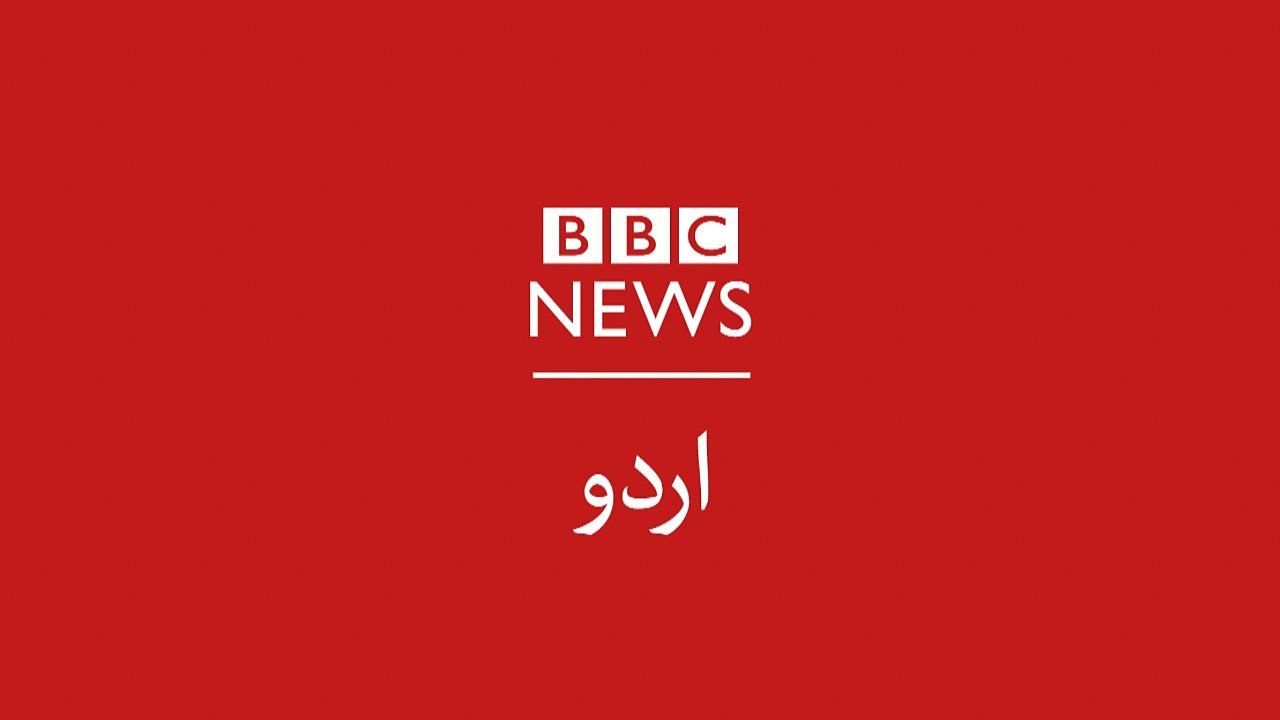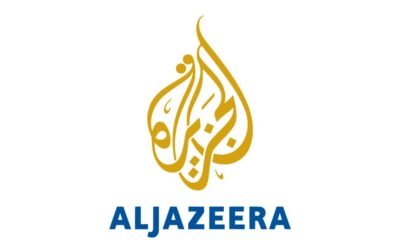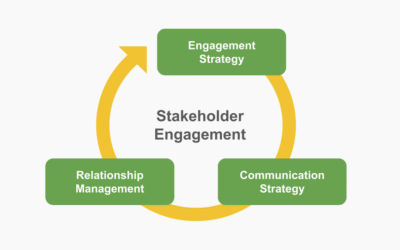The recent narratives of BBC Urdu revolve around economic resilience, new laws, individual brilliance, and acts of community heroism. They initially appear diversified. However, a closer analysis reveals the distinct pattern of framing the country. Resilience and achievement are observed. However, these are undercut by frequent caveats. These caveats portray Pakistan as fragile. One needs to look beyond this framing to see the actual picture. Only then can the deeper facts be revealed.
You May Like To Read: Regulating the Infoscape: PECA, PTA, and Legal Responses to Information Warfare (IW16)
Corporate Resilience Amid Crisis
The BBC’s Wealth Perception Index 2025 highlighted Pakistan’s leading business groups. Fauji Foundation, Bestway, and Lucky Group continue to thrive. They do so despite energy crises, foreign exchange shortages, and slow growth. Other private players like Packages, Fatima, and Sapphire also expanded. They grew without subsidies. They relied on diversification and innovation.
But the report shifted quickly. It stressed structural weaknesses. It pointed to tax exemptions for the Fauji Foundation. These concerns are valid. Yet they overshadow the real story. Pakistan’s corporations are proving resilient in chaos. If they can grow now, their potential under stable policies is far greater. This side of Pakistan rarely gets recognition. It shows the grit and creativity of its private sector.
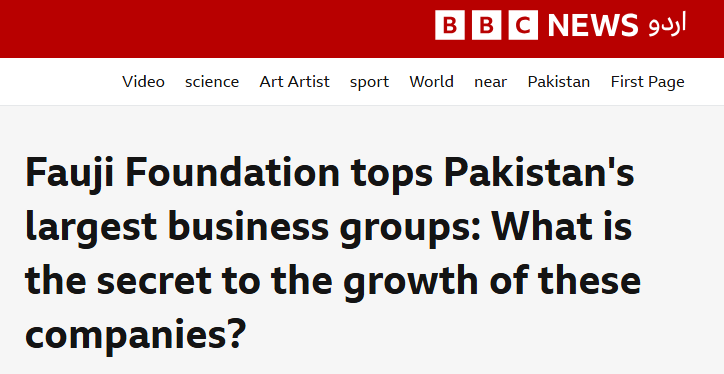
Source: BBC Urdu
Security vs. Civil Liberties: Anti-Terrorism Amendment Bill
The BBC framed the Anti-Terrorism Amendment Bill mainly through civil liberty concerns. It focused on fears of arbitrary detentions and disappearances. These concerns are real and deserve debate. But the coverage lacked balance. Pakistan faces a tough security environment. The TTP has resurged. Cross-border militancy is rising. Instability in Afghanistan adds to the challenge.
The government’s reasoning was clear. It wants to stop plots before they happen. Yet this point was buried under criticism. Pakistan cannot only react. It must also act in advance. Still, the BBC made one strong point. Laws alone will not end extremism. Real change needs police reform, stronger courts, and better education. That critique was valid and worth noting.
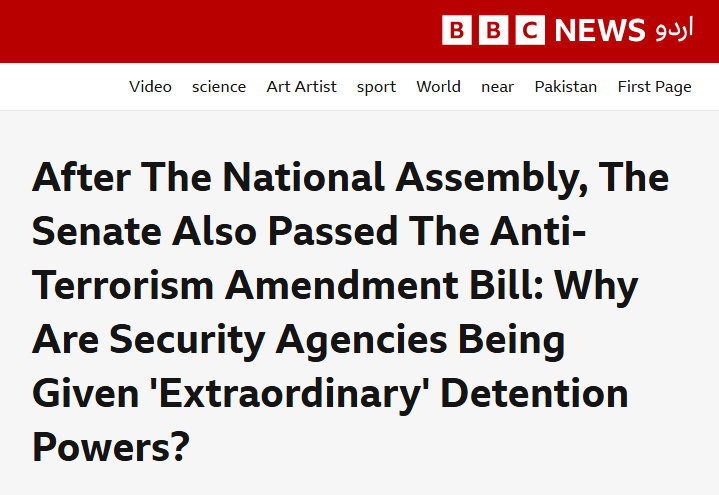
Source: BBC News
Diaspora Excellence: The Case of Mahnoor Cheema
The story of Mahnoor Cheema, a British-Pakistani student with 24 A grades at A-levels, brought a rare positive tone. The BBC praised her discipline, her parents’ support, and her message of hope for girls worldwide. For once, Pakistan’s name was linked to excellence and resilience. It was tied to progress and achievement.
Yet the report added caveats. It spoke of structural privilege and unequal access to resources. These points may be valid. But they reduced the story’s inspirational impact. Mahnoor’s success is more than personal. It shows what Pakistani-origin youth can achieve on a global stage. Her story should have been allowed to shine without disclaimers. Even so, it remained one of the BBC’s more positive portrayals. And for that, credit is due.
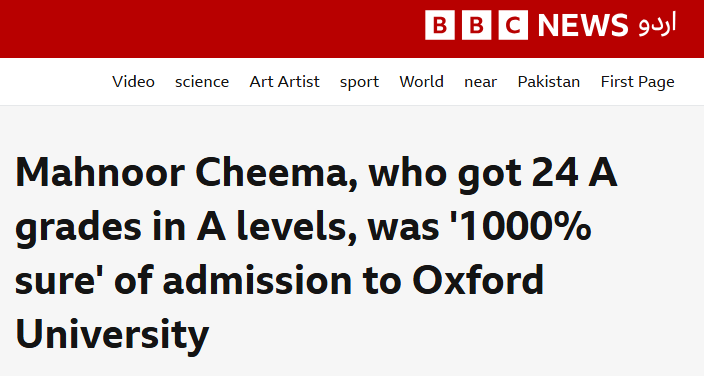
Source: BBC Urdu
Heroism in Gilgit-Baltistan
The story of Bequesht Khan, a shepherd in Gilgit-Baltistan, shows how ordinary Pakistanis act with courage in crisis. When a glacier lake burst threatened villages, he raised the alarm. His warning saved hundreds of lives. Communities acted fast. Mosques made announcements. Young men risked their lives to rescue stranded families. Neighbors helped one another to safety. This was collective action at its best. It showed the spirit of self-help and solidarity that defines Pakistani society.
Pakistan is highly vulnerable to climate change. Glaciers are melting at record speed. Citizens often form the first line of defense. A shepherd warning of floods, villagers organizing evacuations, or youth volunteering in rescues, all reflect resilience. The people of Gilgit-Baltistan proved that natural disasters can destroy homes, but they cannot break the will of communities. They protect each other. They rebuild stronger.
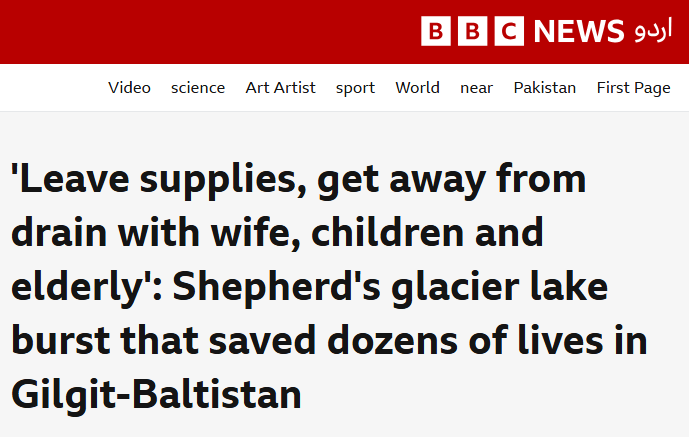
Source: BBC Urdu
Climate Change and the Question for Developing Nations
The BBC’s report on luxury bunkers for billionaires shows how the rich plan to survive climate disasters and wars. They build underground resorts with every comfort. But the real question is what developing nations will do. Countries like Pakistan cause less than 2% of global emissions. Yet they face the worst effects. Glacier bursts in Gilgit-Baltistan and floods in KPK, Sindh, and Punjab are proof. Ordinary citizens cannot hide in bunkers. Their only defense is resilience, solidarity, and government support.
This imbalance exposes global injustice. The wealthy seal themselves in comfort. The vulnerable fight disasters head-on. For Pakistan, the way forward is clear. It must strengthen adaptation strategies. It must demand climate justice at global forums. It must invest in early warning systems, strong infrastructure, and community disaster management. The challenge is survival with dignity. Those who suffer most must not be abandoned while the privileged hide underground.
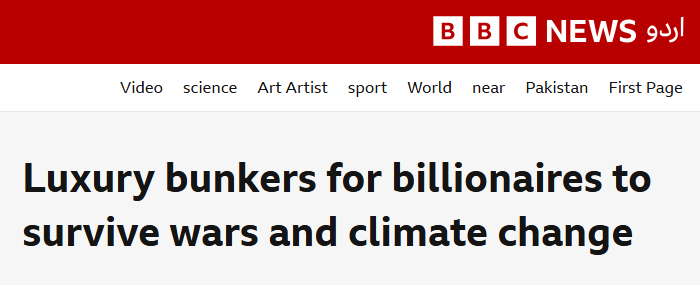
Source: BBC Urdu
Conclusion
A review of these stories shows the BBC’s mixed role in shaping Pakistan’s image. It highlights resilience and achievement, from corporate growth to Mahnoor Cheema’s brilliance and Bequesht Khan’s bravery. Yet it also repeats old tropes of fragility, weak democracy, and helplessness. Pakistan’s reality is more complex. It faces immense challenges but holds equal potential. Its people adapt, innovate, and excel under pressure. Focusing only on weakness misses the larger truth. This is a nation fighting on many fronts but refusing to collapse. The BBC deserves credit for amplifying the voices of courage. But it must be questioned when its framing hides Pakistan’s agency and reduces it to crisis alone. Pakistan is not only a headline. It is a story of resilience, ambition, and an unfinished journey toward stability and progress.
You May Like To Read: International Media Bias: How to Strengthen Pakistan’s Global Voice

